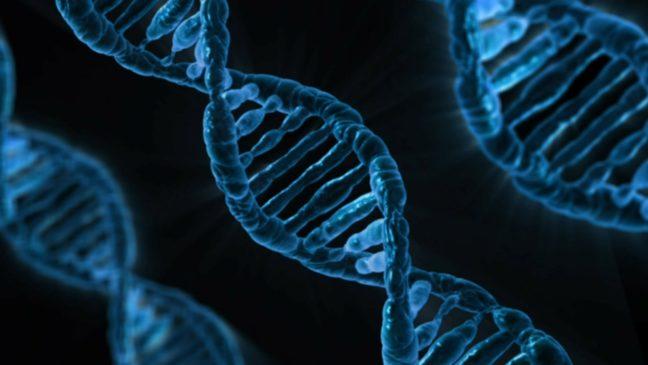In an international workshop in Hanover, Germany in October, scientists from around the world met with bioethicists and government experts to discuss gene editing and the national security implications it entails.
The workshop was organized by the InterAcademy Partnership. In attendance were three University of Wisconsin and Morgridge Institute for Research professors — Pilar Ossorio, professor of law and bioethics, and professors of life science communication — and Morgridge affiliates — Dominique Brossard and Dietram Scheufele.
One of the main topics of the workshop was the CRISPR Cas9, a gene editing tool that is drawing a lot of attention in the world of science. It is more accurate and precise than previous techniques of editing DNA and has a wide range of potential applications.
Cas9 is an enzyme that can cut specific strands of DNA so other strands can be added or removed, UW chemistry professor Lloyd Smith said. A piece of RNA called “guide RNA” binds to DNA through pre-designed sequences that “guide” the enzyme, Cas9, to the desired portion of the DNA.
With all the hype of the technology comes concerns, Smith said. The CRISPR Cas9 getting into the wrong hands is a possibility.
“It becomes very easy to engineer pathological organisms,” Smith said.
New research at UW indicates more ways to understand diseases in nervous system
The threat of bioterrorism has many, like Ossorio, wary of the national security issues that may come with the CRISPR Cas9. This includes using the technology for concocting infectious diseases through genetic mutations in humans as well as animals such as mosquitos.
Another concern with gene editing technology is gene drives. UW assistant professor of biomedical engineering Krishanu Saha said without a gene drive, when entities with different versions of a gene procreate, each offspring has at most a 50 percent chance of inheriting either version of the gene.
A gene drive guarantees that a specific gene will be inherited. As confirmed by Saha, one gene can have different versions and each organism gets two copies of each gene. He said a gene drive contains instructions from a molecular tool, like the CRISPR Cas9, that targets other versions of the chosen gene.
Saha believes one of several methods used by the CRISPR Cas9 is scanning the organism’s DNA and looking for other versions of the gene. Once the CRISPR Cas9 finds another version, the tool cuts that version of the gene out.
Left with a hole, the body of the organism uses the gene with the gene drive as a template to patch up the hole, Saha said. The organism now has two copies to pass on to the next generation.
With a gene drive, when parents with different versions of a gene pass on their DNA, essentially all offspring will inherit the gene with the drive, Saha said.
“Security experts also worry about a gene drive that could be used to gradually poison a food supply, or enable a mosquito to transmit more rather than less virus,” Ossorio said in a press release.
The workshop participants discussed methods to resolve potential national security concerns that come with the CRISPR Cas9 and its applications. Various technical, legal, regulatory and policy approaches were suggested to prevent and mitigate potential problems.
“There are safety and environmental concerns about releasing an organism that has a gene drive into the wild,” Ossorio said.
Astrobotany gets a new look: New research generates fashion line
The CRISPR Cas9 is already in use in the agricultural context. Multinational agrochemical and agricultural biotechnology corporation Monsanto is a consumer of the technology.
Crops that have been edited are raising eyebrows in the world of public health, Saha said. Scientists can have a difficult time telling the difference between edited crops, so the average consumer probably can not either.
“It is so hard to tell whether they have been edited or the crop has just evolved over time,” Saha said.
UW professor of biochemistry and genetics Richard Amasino believes the workshop in Hanover recognizes the importance of an open and inclusive dialogue when it comes to gene editing, and doesn’t express any grave concerns about using the technology.
While genome editing is being used more widely, in particular the CRISPR Cas9, this does not necessarily mean that there will be increased risks of misuse that we haven’t heard already, Amasino said.
Million-dollar initiative looks to help revolutionize microbiome research at UW
“There are other more important things I’m more concerned with, like carbon dioxide being released in our environment,” Amasino said.
The workshop concluded that the next steps to take are to clarify what is currently uncertain and where there is consensus, and to communicate the continuing responsibility of the scientific community to tackle these complex topics.
According to the European Sciences Science Advisory Council, it would be desirable to develop a sustainable network of experts to share opinions, identify priorities for further study and serve as a basis for expanding engagement on genome editing.
“We cannot envision all of the directions this technology could take,” Ossorio said.
____
Correction: A previous version of this article incorrectly stated Lloyd Smith was a professor of biomedical engineering. He is a chemistry professor. The Badger Herald regrets this error.

















